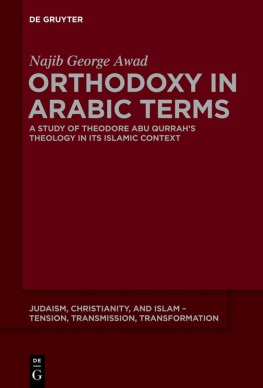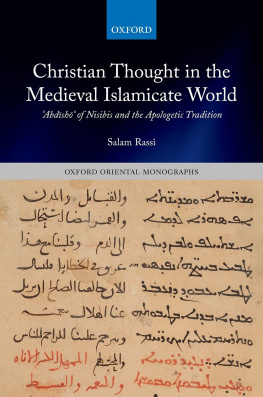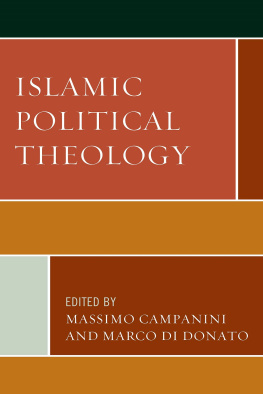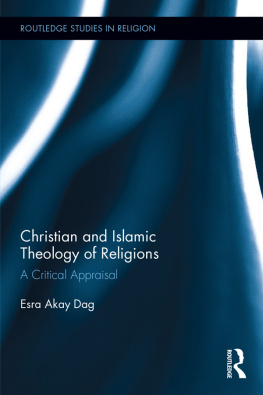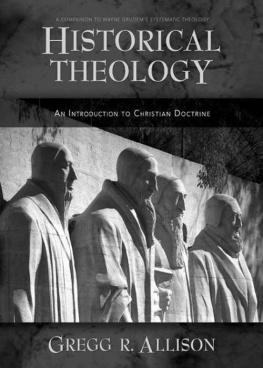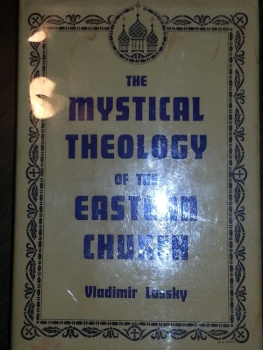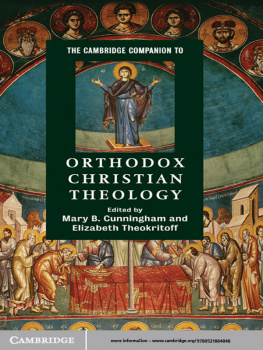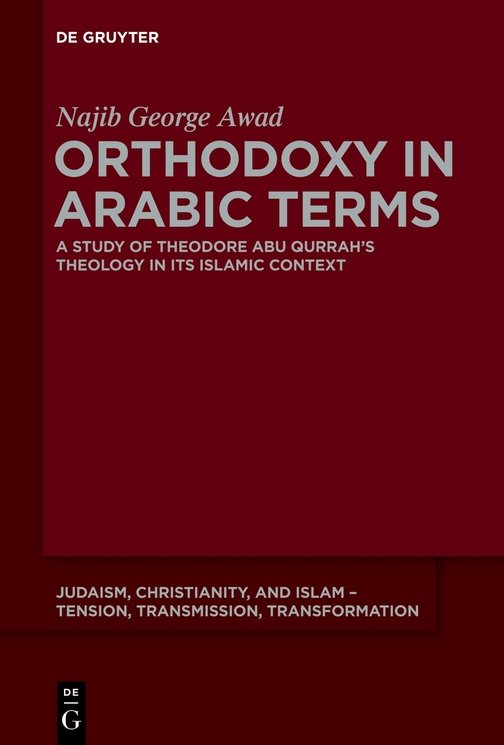Concluding Postscript.
Theodore Ab Qurrah: A Melkite Orthodox Mutakallim in Dr al-Islm
In this study, I have ventured through the Arabic apologetic literature of one of the most prominent Arabic-speaking Melkite theologians of the 8th 9th centuries, whose textual legacy it is our good fortune and privilege to have extant today. Theodore Ab Qurrah ought not to be approached just as a late-Byzantine, staunch orthodox-Chalcedonian theologian from the Melkite Church of Syria-Palestine. The Bishop of arrn is also one of the most, if not even the most, influential, seminal and able Christian theologians of the early Abbasid era, who not only defended the orthodox Christian faith against the attacks of other Christians, but also attempted brilliantly to argue with Muslims, in their own mother-tongue, for the logical and rational tenability of Christian orthodoxy.
I did not aspire in this study to present a comprehensive exposition of all Theodores theological works, nor did I promise a philosophical and doctrinal analysis of every theme Ab Qurrah touched upon in his extant writings (which I hope I shall have the opportunity of pursuing one day). I have limited my attention, first, to Theodores apologies to Muslims, leaving aside his apologies to the non-Chalcedonian branches of Christianity in his time. I have focused, second, on Ab Qurrahs theological dialogues and controversies with Muslim interlocutors specifically on the doctrine of the Trinity and some selected themes from Christology. The Trinity and Christology, as every scholar of Christian-Muslim relations knows, are not simply two subjects of controversy between the followers of these two religious traditions in present-day interreligious interactions alone. They have also clearly been the most divisive issues between Muslims and the Christians, and those that have caused the most antagonism, ever since the invaders from the Arabian Peninsula entered the lands of Syria-Palestine in the early 7th century and encountered the local Aramaic- and Greek-speaking people of those territories. I have given comprehensive analytical attention to these two doctrinal issues to show that they were similarly central to, and primary in, almost all of Theodore Ab Qurrahs conversations with Muslims. By centralizing these two subjects in his discourse with them, Ab Qurrah definitely became the man of his time, and his texts are not only evidence of his own bright, highly sophisticated mind, but also mirror the intellectual and cultural complexity and intensity of the 8th 9th-century context at the geographic heart of the Islamic caliphate.
In my study of Ab Qurrahs discourses to Muslims on the Trinity and Christs divinity, sonship and incarnation, I took my analytical-critical examination beyond the narrow boundaries of the impact and implications his theological logic would have had for the Muslim ear, and I also went beyond these boundaries to examine the impact and implications of Ab Qurrahs interpretation of Trinitarian and Christological orthodoxy to the ears of his fellow Melkite and orthodox-Chalcedonian Christians of Syria-Palestine (who were alive during Theodores life-time and either witnessed personally, heard about or read some of his Arabic hermeneutics and apologetic reasoning with Muslims on orthodoxy). I explored whether or not, in his attempt to convey Christian orthodox thought to Muslims in their own language and via their own conceptual, logical and textual Islamic webs of meaning, Ab Qurrah would have seemed to his fellow Melkites to be compromising the core content of orthodoxy and twisting and bending its notions and claims in such a pragmatic, un-orthodox manner that he ultimately emptied it of its original, ecclesially and creedally authorized meaning. In other words, I explored whether or not, in his attempt to communicate with Islam, and regardless of whether he succeeded or failed to do so, Ab Qurrahs method shows a theologian who avoids innovation in confessing his faith, or, rather, one who is keen to innovate because he believes it will help him conveying that faith.
In his reflection on the understanding of the Church fathers authority and its relation to originality and independence in theological thinking, Jaroslav Pelikan considers Maximus the Confessor to be an example of the meaning of authority in relation to theology. Pelikans indirect question that is implicit in this view seems to be something like: What makes a Church fathers theological contribution authentic and ultimately authoritative in the Church? Is it that theologys originality and the results it achieves, or is it its adherence to the traditional confession of the Church? According to Pelikan, Maximus the Confessor gives us an answer that leans towards the latter answer, for Maximus, Pelikan explains, is considered by Church historians to be the most universal spirit of the 7th century, and the real father of Byzantine theology. Maximus ultimately earned these epithets of praise, as Pelikan notes, not because of the innovative, original and productive theological contributions (with which his theology is seminally pregnant), but rather because of his strict confession of the faith of the church.
The authority of the theologians teaching stems from the excellence of his confessing with soul and mouth the official teaching that the church had inherited unchanged and strictly preserved from generation to generation. This glorification of preservation, protection and defensiveness over innovation, originality and creative re-articulation, Pelikan continues, is a general characteristic of Byzantine Christendom, if not of all other branches of Christian theology, orthodox and heterodox alike: all parties of Christians in all controversies had in common a wish to conform themselves to that authority.
According to this understanding of theological authority, Theodore Ab Qurrah would not be truly Byzantine in his rational and theological approaches. The study presented in this book on his Trinitarian and Christological discourses conspicuously demonstrates that he was not a confessor like his intellectual mentor, Maximus the Confessor, nor was he a steady, conservative, unfaltering transmitter of the fathers teaching, like his other mentor, John of Damascus. In this sense, Ab Qurrahs writings do not present before us a Byzantine mind such as Pelikan and Ware describe.
Nevertheless, this is not evidence that Ab Qurrah compromised his Byzantine identity or formally rejected such Byzantine orthodoxy(ies). The reason for the inappropriateness of such an accusation is rather simple: in none of his extant works does Ab Qurrah state that he considers himself either a Byzantine theologian or a spokesman for the Byzantine doctrinal cause. He neither speaks in support of, nor declares that he is breaking with, Byzantine Christendom. In fact, Theodore never considered himself part of this form of Christendom in the first place, and did consider patristic orthodoxy as existing strictly and exclusively in the Byzantine tradition. In other words, one cannot accuse Theodore of abandoning what he did not attribute to himself or identify himself with in the first place.
Ab Qurrahs commitment to innovation and originality in his theological discourse shows his dissociation from the Byzantine centralization of conformism and rejection of innovation, but this does not automatically mean that he parted company in his methods with orthodoxy and its understanding of Tradition. It is one of the fundamental factors of the 8th9th centuries context, as shown on chapter two of this study, that theological orthodoxy was patronised and defended by two Christian Chalcedonian church bodies: the Greek-speaking church that had until then flourished within the territories of the Byzantine Empire, and the Arabic-speaking church that flourished from that time onwards within the territories of the Islamic Caliphate. During the time of Ab Qurrah, this second church body, to which he belonged and which he served, that Chalcedonian church called Melkite, had a publically declared Arab identity and no longer considered itself Byzantine. Even so, the Melkite Church never stopped being orthodox in its theology and in its understanding of patristic Tradition. So, Byzantine and orthodox ceased being synonymous for this Chalcedonian Syro-Palestinian community, not only ecclesiologically, but theologically as well.

